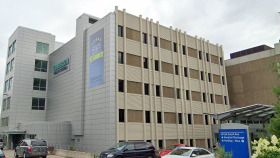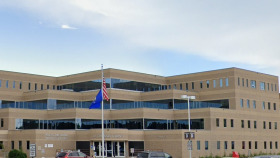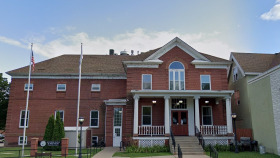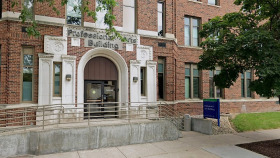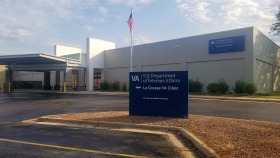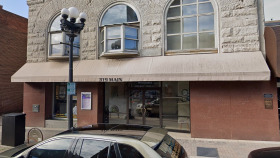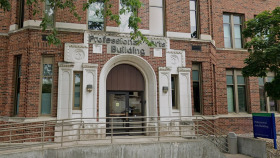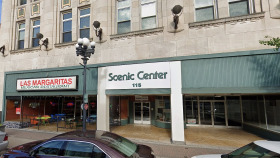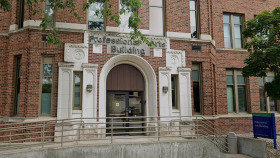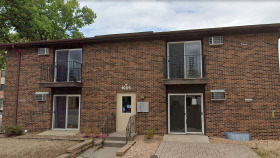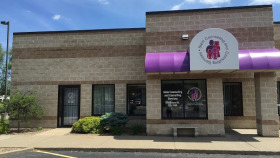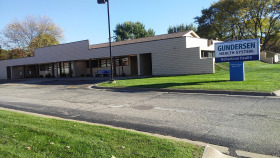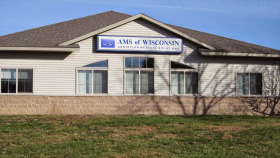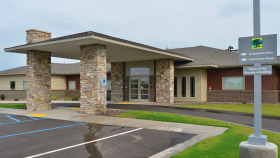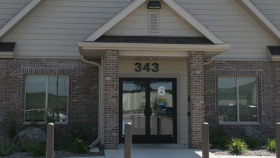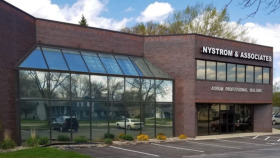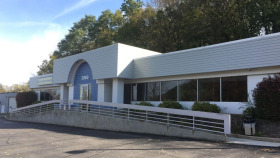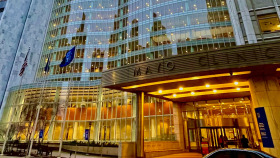Substance Abuse and Addiction Statistics in La Crosse, WI
Drug- and alcohol-use statistics for the city of La Crosse and La Crosse County include:1,3,4,5
In 2021, roughly 27% of La Crosse County residents said they engaged in binge drinking or regularly drank excessively.
Approximately 35% of driving deaths in La Crosse County involved alcohol-impaired drivers in 2021.
Levels of Care for Addiction Treatment Settings
There are various levels of addiction treatment, ranging in intensiveness and frequency of care. The right level for you depends on the length and severity of your addiction, your mental and physical health, your support system, and more.
Detoxification
Drug and alcohol detox is a controlled and supervised setting in which your body gets rid of addictive substances. Detox can occur in several settings, including outpatient and inpatient environments. Some are medically managed, which means doctors and nurses provide medications and medical care round-the-clock. Certain drugs, such as alcohol, benzodiazepines, and opioids, have particularly distressing and even dangerous withdrawal symptoms, so these drugs often necessitate detox.
Inpatient Care
Inpatient or residential drug rehab is the most intensive addiction treatment setting, providing 24/7 care, supervision, and monitoring. You live at the facility for the duration of the treatment program, which may last 30, 60, or 90 days. This setting may be best for someone with a severe addiction, polysubstance addiction, or co-occurring mental health disorder, like PTSD or depression.
Partial Hospitalization Programs (PHPs)
PHPs provide a high level of care while allowing you to live at home during the program. You go to the clinic every day for several hours per day but return home during non-treatment hours. It’s a great option for step-down care after completing an inpatient program or as an initial treatment program for someone who can’t necessarily go to inpatient care due to obligations.
Intensive Outpatient Programs (IOPs)
A step down from PHP, an IOP includes several hours of therapy for a few days per week. This option may be beneficial if you have a mild addiction and a strong support system. It may also be used as step-down care after completing inpatient or PHP.
Standard Outpatient
If you choose standard outpatient treatment, you attend therapy one to two days per week for one or two hours per session. Many people make their way through the continuum of care by first completing inpatient or an intensive outpatient program before stepping down to standard outpatient.
Aftercare
Once you’ve completed an addiction treatment program, you will want to continue receiving ongoing support, known as aftercare. You can collaborate with your treatment team on creating an aftercare plan that addresses your needs and preferences. Some people transition into a sober living home while others may join a support group, attending therapy, or all of the above.
How to Pay for Drug Rehab in Wisconsin
Cost shouldn’t be a barrier to quality addiction treatment. There are many ways to finance drug rehab so that you can get the help you need.
Use Private Health Insurance
If you have private health insurance through work or the Healthcare Marketplace, you can use your plan to at least partially, if not fully, cover substance abuse treatment services. Every plan is different—some fully cover inpatient rehab for a certain period while others may only partially cover residential. Make sure to call your provider to learn more. And once you know what your insurance provider will pay, make sure to find a rehab that is in-network with your provider.
BadgerCare (Wisconsin Medicaid)
BadgerCare is Wisconsin’s Medicaid program for low-income people, families, and pregnant individuals who don’t have access to private health insurance. BadgerCare covers drug and alcohol rehab in Wisconsin, including inpatient, outpatient, medication-assisted treatment, assessments, and beyond. Not every treatment facility accepts Medicaid, though, so you’ll want to do your research before committing to one.
Medicare
Medicare is a government program providing health insurance coverage to Wisconsin residents aged 65 and older or those with certain disabilities or health conditions. Like BadgerCare, Medicare covers substance abuse treatment services, such as outpatient rehab, residential treatment, and addiction treatment medications.
TRICARE in Wisconsin
TRICARE provides health insurance coverage for veterans, active-duty military personnel, and their families, and it covers much-needed drug rehab and alcohol rehab services as well as mental health treatment.
Sliding Scale Rehabs
Sliding scale rehabs are able to offer treatment at discounted rates depending on a person’s income, meaning that they only charge you what you are reasonably able to pay. This can greatly reduce the financial burden of drug rehab and enable you to seek the treatment you need to recover from addiction.
IHS-Funded Drug Rehabs
Some drug and alcohol rehabs receive funding from the Indian Health Service, which is a federal health program for Indigenous people in the U.S., including Alaskan Natives. These rehabs offer no-cost addiction treatment to Native Americans, whether they already have health insurance or not. However, the majority of IHS-funded drug rehabs are located on reservations, which may make it difficult for Indigenous folks in cities to access them.
Local Information for La Crosse, WI
Will you be traveling to enroll in a drug or alcohol rehab in La Crosse? Are you visiting the city to see a loved one who’s currently working through treatment? If so, these travel tips may assist you in your trip planning:
- If you want to fly directly into La Crosse, you can book a flight to La Crosse Regional Airport, which sits just six miles from the city center. However, many locals prefer to use Minneapolis-St. Paul International Airport (MSP) for air travel—which is 2.5 hours away by car—as it has many more flight options.
- If you want to go to MSP for a flight, Amtrak operates trains that can take you from the city to the airport and vice versa. Greyhound also offers bus service between the two cities.
- Interstate 90 passes directly through La Crosse and travels both east and west into neighboring states. Other easily accessible transit routes include U.S. Route 53 and State Routes 14, 16, 33, and 35.
- Downtown La Crosse is somewhat walkable and largely bike friendly; however, you’ll want to use some form of vehicle transportation during Wisconsin’s frigid winters.
- La Crosse has about a dozen national-chain and non-branded lodging options.
- Municipal Transit Utility serves La Crosse and operates six routes that cover almost the entire city. Service is available seven days per week, with fewer stops on weekends.
- Local attractions worth visiting include Riverside Park, Riverside International Friendship Gardens, the Dahl Auto Museum, and Pump House Regional Arts Center.
Alcohol and Drug Laws in Wisconsin
Alcohol and Drug Laws in Wisconsin:1,2
Wisconsin Naloxone Access and Administration Law: Residents of Wisconsin can obtain naloxone (Narcan) without a prescription and they can also administer it to an overdosing person once they’ve had proper training.
Wisconsin State Good Samaritan Law Amendment: Bystanders in possession of drugs can call 911 to help someone who is overdosing without the risk of being arrested and prosecuted for possession.
Resources
- Centers for Disease Control and Prevention, National Center for Health Statistics. CDC Wonder Online Database. (2021). Underlying Cause of Death, 1999-2020 Results, Deaths occurring through 2020.
- Substance Abuse and Mental Health Services Administration. (n.d.). FindTreatment.gov.
- La Crosse County. (2022, June 21). County to Distribute Fentanyl Test Strips.
- Wisconsin Department of Health Services. (n.d.). Dose of Reality: Opioid Deaths by County Dashboard.
- University of Wisconsin Population Health Institute. (2021). County Health Rankings & Roadmaps, La Crosse, WI.


